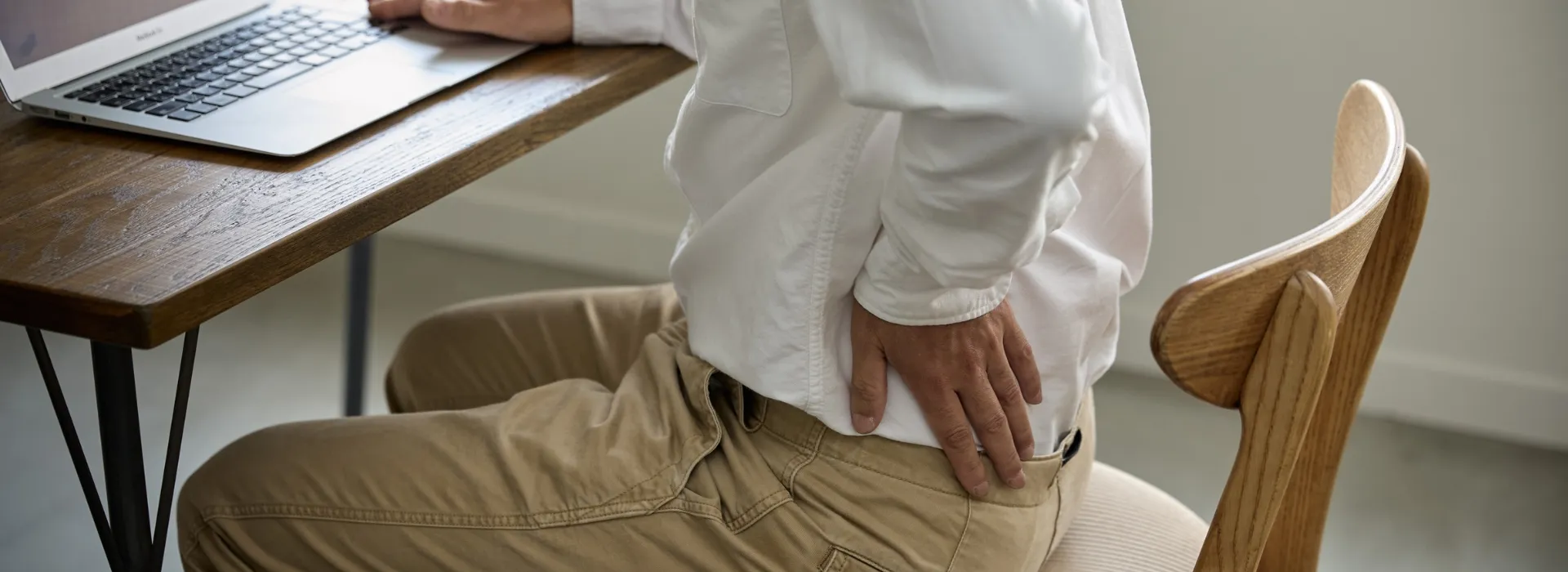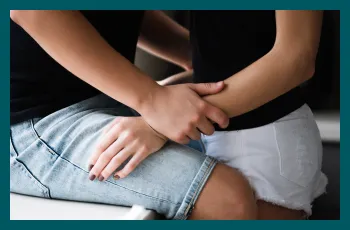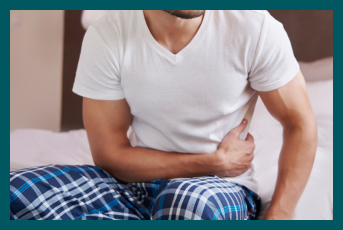My whole body aches and I feel weak — Causes & treatment
Written by Dr Nelson Lau, MBBS FRACGP, GP & Digital Health Specialist. Blog updated on 28 October, 2025. Originally published on 07 April,2025.

Contents

Overview
Whole-body aches and weakness can stem from various causes like viral infections, autoimmune conditions, stress, or nutritional deficiencies. While sometimes it's just muscle soreness from overexertion, persistent or severe symptoms may signal something more serious, like rheumatoid arthritis or hypothyroidism. Paying attention to accompanying signs such as fever, fatigue, or joint stiffness is key. Home remedies like rest, warm baths, hydration, and gentle movement can offer relief — but if symptoms linger or worsen, consult a doctor. Always trust your instincts and seek professional help when in doubt. You’re not imagining it. Sometimes, you wake up feeling like every part of your body is begging for a break. You try to stand, and there's a weird twinge in your calves; you reach for a cup of coffee, and your arms feel oddly heavy. It's like the universe decided to swap out your limbs for dead-weights overnight. Is it a random bug? Stress? Something bigger? Let’s dig in.Causes
We’ve all had those mornings — you wake up and it feels like your entire body staged a protest overnight. Maybe you hit the gym after a long break, moved house, or simply overdid it on the weekend. That deep, dull ache is often just normal muscle soreness caused by tiny tears that happen when muscles are pushed beyond their comfort zone. A bit of rest, hydration, and gentle stretching usually does the trick. But sometimes, the aches show up for no clear reason. That’s when it’s worth looking a little deeper. Whole-body aches and weakness can stem from several causes — some temporary, others medical. Common causes include:- Viral or bacterial infections: The flu, common cold, or even strep throat can trigger widespread muscle pain and fatigue as your body fights off infection.
- Autoimmune conditions: Disorders such as rheumatoid arthritis, lupus, or fibromyalgia can cause chronic pain and exhaustion because the immune system mistakenly attacks healthy tissues.
- Nutritional deficiencies: Low levels of vitamins like B12 or D can leave you feeling tired, weak, and achy.
- Thyroid problems: An underactive thyroid (hypothyroidism) slows down metabolism, which can cause muscle stiffness and fatigue.
- Dehydration and lack of sleep: Both reduce your body’s ability to repair tissues and flush out toxins, making you feel sore and sluggish.
- Stress and emotional strain: Long-term stress tightens muscles and elevates stress hormones, amplifying pain and draining your energy.
- Physical overexertion: Even something as simple as yard work, hiking, or an intense workout after a long break can trigger temporary body aches.
Symptoms
Keep an eye on these signs, especially if they don’t improve:- Persistent fatigue: The body shows exhaustion after resting which could point to thyroid problems or iron deficiency. The presence of fever or chills could indicate that you have contracted an infectious disease such as influenza or a viral infection. The condition causes muscle stiffness and swelling which develops from both overexertion during physical activity and inflammatory tissue reactions. The human body displays three primary signs which indicate dehydration or sleep deprivation or excessive stress levels: - Headaches or dizziness. Medical assistance should be sought immediately for any signs of shortness of breath or chest pain.
Feeling sick and unsure why? Speak with a GP online in 15 minutes.
See a Doctor now
Available 24/7, across Australia.
Home Remedies
Before rushing to the doctor, it’s worth trying a few simple home remedies that can ease whole-body aches and help your body recover naturally. Most of the time, a little rest, good nutrition, and self-care go a long way.Rest and recover
Listen to your body — it’s asking for a break. Avoid strenuous activity and give your muscles time to repair. Rest doesn’t mean lying down all day; light movement like stretching or a short walk can keep your blood flowing without overexertion.Stay hydrated
Hydration is one of the most overlooked forms of self-care. Drink plenty of water or electrolyte-rich drinks, especially in hot climates like Australia’s. When you’re dehydrated, your muscles can feel heavier and more painful than they actually are.Eat nourishing foods
Fuel your body with balanced meals rich in protein, vitamins, and minerals. Foods like leafy greens, lean meats, eggs, nuts, and whole grains support muscle recovery and boost energy levels.Take warm baths and showers
A warm soak can do wonders for sore, tired muscles. Add Epsom salts if you like — the magnesium may help reduce inflammation and ease pain. Warm water also improves circulation, helping nutrients reach your muscles faster.Stretch and move gently
A short yoga or stretching session can help release tightness and stiffness. Focus on gentle movements; the goal is to loosen up, not push harder. Even a few minutes a day can make a difference.Manage stress
Stress can tighten muscles and drain your energy. Practices like meditation, deep breathing, walking, or yoga help calm your mind and reduce tension throughout your body. Sometimes, mental relaxation is the key to physical relief.Try light massage
If professional massage isn’t an option, use a foam roller or even a tennis ball to ease tension points. Focus on sore areas like your back, shoulders, and legs — but stop if it causes pain.Get quality sleep
Your body does its best repair work while you sleep. Aim for 7–9 hours of uninterrupted rest each night. A good sleep routine — consistent bedtime, dark room, and limited screen time — helps your muscles heal faster.Use over-the-counter relief if needed
For stubborn soreness, pain relievers like ibuprofen or paracetamol can help. Use them as directed and only for short-term relief — if your pain doesn’t improve, check in with your doctor.When should you call the doctor?
I’m a big believer in listening to your gut. If your aches persist or become worse, it never hurts to check in with a medical professional. But let's narrow it down a bit:- If you’re spiking a high fever that doesn’t improve with over-the-counter fever reducers.
- If you can’t perform everyday tasks — like carrying groceries or walking up-stairs — because the weakness is that severe.
- If you notice swelling, redness, or a weird rash anywhere.
- If you have difficulty breathing or chest pain (always a red flag, in any context).
- If your aches haven’t let up after a week, with no signs of improvement.
How Telehealth Can Help
When your whole body aches and you feel too weak to leave the house, getting medical advice shouldn’t add to your stress. That’s where telehealth services like Hola Health come in. With just a few clicks, you can connect to a qualified online Australian GP anytime — 24/7 — right from the comfort of your couch. Telehealth offers a safe and convenient way to understand what’s behind your symptoms, whether it’s a viral infection, stress, nutritional deficiency, or something more serious. You’ll get professional medical guidance without sitting in a crowded waiting room or traveling while unwell. With Hola Health, you can:- Consult an online GP anytime — including after-hours and weekends.
- Receive prescriptions online from licensed Australian doctors within minutes.
- Request referrals for blood tests, imaging, or specialists if further investigation is needed.
- Get a doctor’s certificate online if body aches or fatigue are affecting your ability to work or study.
Key points to remember:
- Body-wide aches + weakness can have countless causes, from a simple strain to a more complex medical issue.
- Pay attention to other signs like fever, rash, breathing difficulties, or prolonged pain.
- Don’t forget about the basics: sleep, hydration, nutrition, and stress management.
- Mild, gentle movement and warm baths can be your best friends when aches strike.
- Trust your instincts. You know your body better than anyone else, and if something feels “off,” seek help.
Conculstion
Your body is always sending signals, even if they’re as vague as “ugh, everything hurts.” If it’s a short-term ache tied to a known cause (like the workout scenario), maybe all you need is rest and some self-care. But if that ache lingers — or teams up with suspicious new symptoms — it’s wise to check with a healthcare provider.FAQs
Why does my whole body ache even if I’m not sick?
Body aches exist as a physical sensation which does not require any infection to occur. The main causes of this condition stem from physical exhaustion and dehydration and stress and inadequate rest. It’s your body’s way of saying “slow down”.How long do body aches usually last?
Most mild aches will heal on their own during a few days of rest and proper fluid consumption. If symptoms last more than a week, it’s best to get checked by a doctor.Can stress or lack of sleep cause full-body weakness?
Yes — both can increase inflammation and reduce energy levels which results in muscle pain and fatigue. The combination of stress management with improved sleep quality will lead to major positive changes.When should I worry about body aches?
You should worry about body aches when they occur with other symptoms that indicate a serious health issue. Medical evaluation needs to start right away for these symptoms: A fever that exceeds 39.4°C or continues for longer than three days. The presence of swelling or redness in the affected area. The development of body aches that worsen over time. The presence of shortness of breath or difficulty breathing. The presence of chest pain or pressure. The presence of confusion or difficulty speaking. The presence of severe headaches that worsen with movement. The presence of numbness or weakness in the body. The presence of fever that lasts more than three days. The presence of body aches that worsen with movement. You should visit a doctor when your aches appear with fever or rash or unexplained weight loss or shortness of breath. Persistent or worsening pain also needs medical review.Why do I feel so tired and all my joints ache?
This can be a slow burn or come out of nowhere. Common reasons:- Rheumatoid arthritis: It often brings morning stiffness and can leave you exhausted, especially during flare-ups.
- Hypothyroidism: When your thyroid’s underactive, it doesn’t produce enough hormones, and your entire system can feel sluggish.
- Stress & anxiety: Emotional turmoil can manifest physically, tightening your muscles and messing with your sleep cycles.
- Chronic fatigue syndrome: The name says it all, and joint pain can be part of the package deal.
Why do my joints hurt in the morning?
Ever do that thing where you’re half-awake, you stretch, and your knees practically groan back at you? Joints often get stiff overnight because they haven’t moved for hours. A bit of fluid build-up, a bit of muscle tension, and voilà — morning aches. For many people, it disappears after a warm shower or a short walk around the house. But if it’s not going away within 30 minutes or so, or it’s excruciating, something else could be at play, like rheumatoid arthritis or osteoarthritis. A doctor can help you confirm if there's an underlying condition.When do body aches become a cause for worry?
There’s no one-size-fits-all answer, but a few glaring signs might mean it’s time to worry:- Severe, unrelenting pain that’s out of proportion to any activity you’ve done.
- Persistent aches that don’t improve after a week or more.
- Other symptoms like confusion, disorientation, or a rash that’s spreading.
- Worsening weakness (maybe you were fine yesterday, but today you can barely lift your arm).
Which illnesses typically kick off with body aches?
So many! If your body is feeling “off” in a broad way, it might mean a virus or bacterial infection is creeping in. The flu is famous for that. You go to bed fine, and by lunchtime the next day, it feels like every muscle is staging a protest. Mono (that's “the kissing disease” from high school health class) can begin with an almost debilitating sense of weakness and super-sore joints. Even strep throat or a standard cold can sometimes make you feel worn out all over. The key is to watch for extra signs:- Fever or chills?
- A new cough or shortness of breath?
- Tummy troubles, like nausea or diarrhoea?
- Headaches or a scratchy throat?
Get your prescription online within
15 minutes, anytime, anywhere.
15 minutes, anytime, anywhere.
Request an instant script
Available 24/7, across Australia.
What we treat
- Cough
- Nausea & vomiting
- Fever
- Hayfever
- Fatigue
- Sore throat
- Acne
- Hair loss
- Gout
- Eczema
- Rosacea
- Sunburn
- UTI
- Erectile dysfunction
- Contraception
- Morning sickness
- Morning after pill
- Prostate health
- Anxiety
- Depression
- Stress
- Grief & loss
- Antidepressants
- Premature ejaculation
- Asthma
- Blood pressure
- Blood thinners
- Diabetes
- Cholesterol
- Migraines & headaches
- Allergies
- Body ache
- Heartburn & reflux
- Sleep disorder
- Pain relief
- Gastro
Related Articles
Disclaimer
This blog is for general informational purposes only and does not indicate that Hola Health provides all treatments or preventive measures mentioned. It is not intended to be a substitute for professional medical advice. Always seek the guidance of your doctor or other qualified health professional with any questions you may have regarding your health or a medical condition. For emergencies please immediately contact 000. Any medical topics discussed are intended to educate, not to imply availability through Hola Health.
 Facebook
Facebook  X
X  Copy Link
Copy Link



